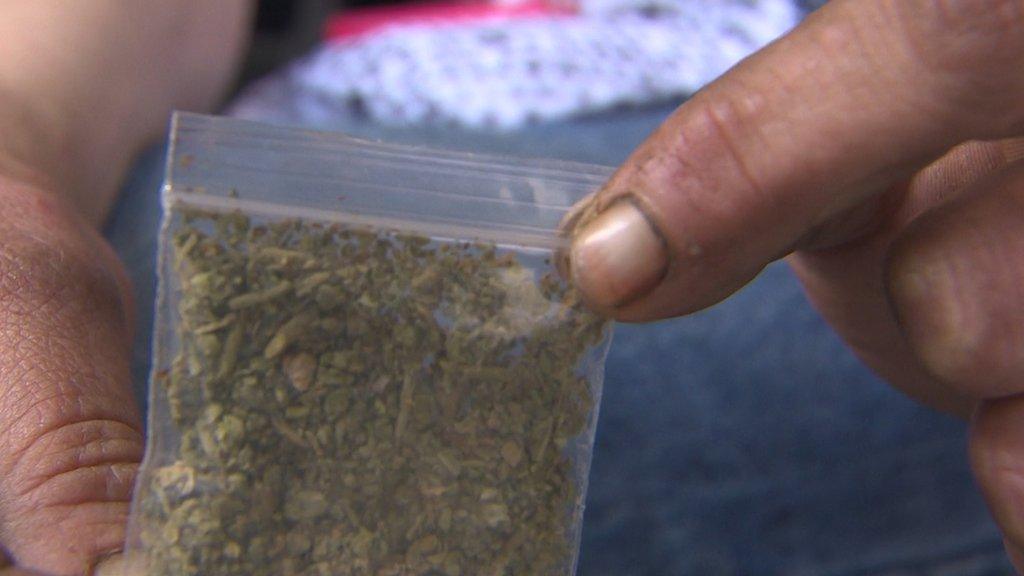Spice saliva drug test 'could save lives' among users
- Published
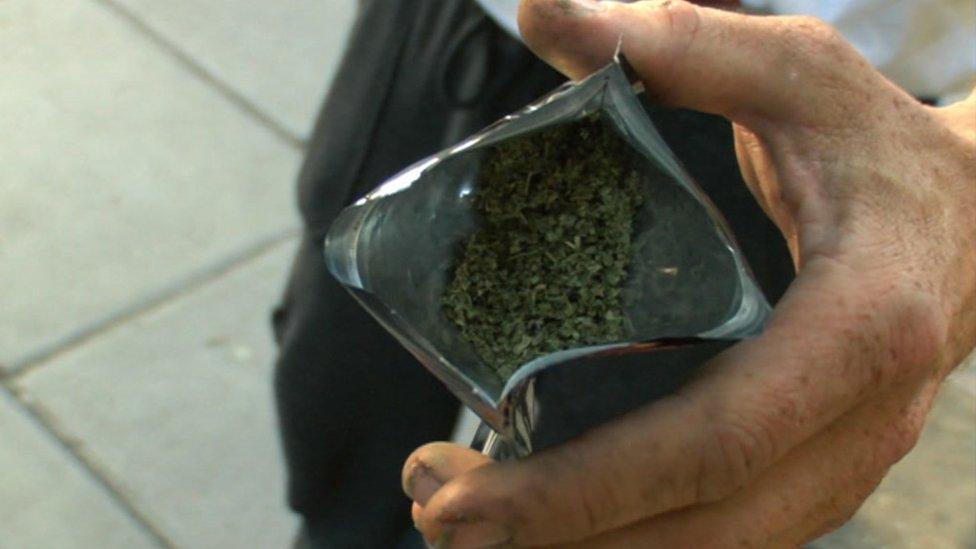
The test could help emergency services be more certain whether someone had taken Spice
Scientists have developed a handheld saliva test to be used by paramedics and homeless services to detect whether someone has taken the drug Spice.
It was hoped the drug test would be used as a harm reduction tool and would help people act faster in an emergency.
Christopher Pudney from the University of Bath said it could save Spice users from the potentially fatal drug, which he said was "almost exclusively" used by the homeless and people in prison.
The test should be available in 2020.
The current prototype has been developed by scientists at the department of biology and biochemistry at the university.
Spice is commonly made using a range of chemicals and can have severe debilitating effects and leave users incoherent and in a zombie-like state, or even an induced coma.
'Most vulnerable'
It would see testers take a saliva sample that would be placed in a special holder hooked up to a laptop.
The machine would then use the chemicals in that sample to search for signs of use of the various different drugs found in the Spice family.
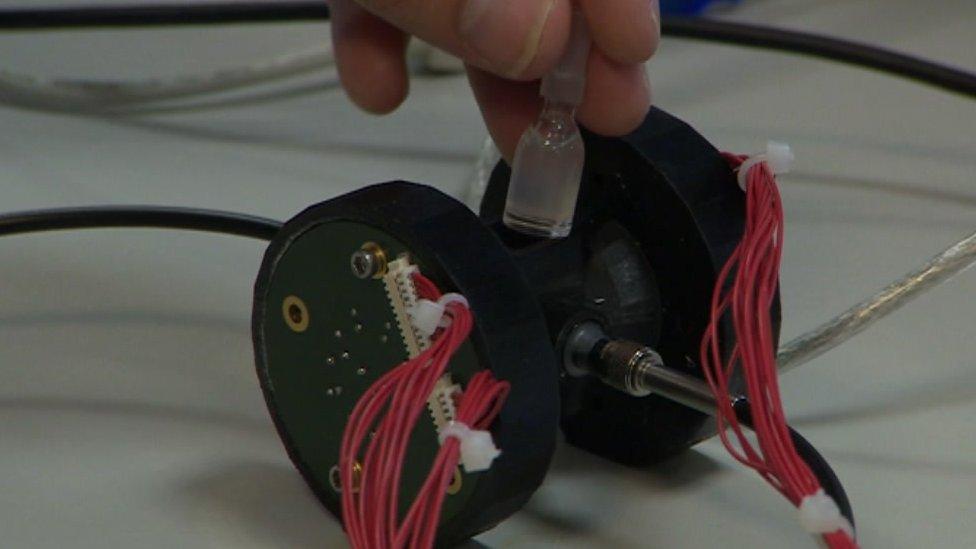
University of Bath scientist Christopher Pudney said the kit would hopefully act as an avenue to save the lives of users
A number of organisations were consulted over how the kits should be used, including Public Health England, Bristol Drugs Project, Avon and Somerset Police and the Salvation Army.
Dr Pudney said he hoped the technology would help people out of addiction and said Spice disproportionately affected those who were "the most vulnerable in society".
"The size of a homeless community is linked to the amount of Spice use, which is why we worked with homeless in Bristol to develop the new technology and how it could be used best," he added.
A BBC report two years ago found the increase of use of Spice in Bristol was linked to the drug becoming "readily available".
From 2016 to 2019 the number of Spice users admitted to Bristol Royal Infirmary's A&E department rose from 141 to 218 cases, an increase of about 55%.
Spice is commonly made using a range of chemicals and can have severe debilitating effects and leave users incoherent and in a zombie-like state, or even an induced coma.
The substance was classified by the government as a class B drug and banned in May 2016.
- Published5 June 2019
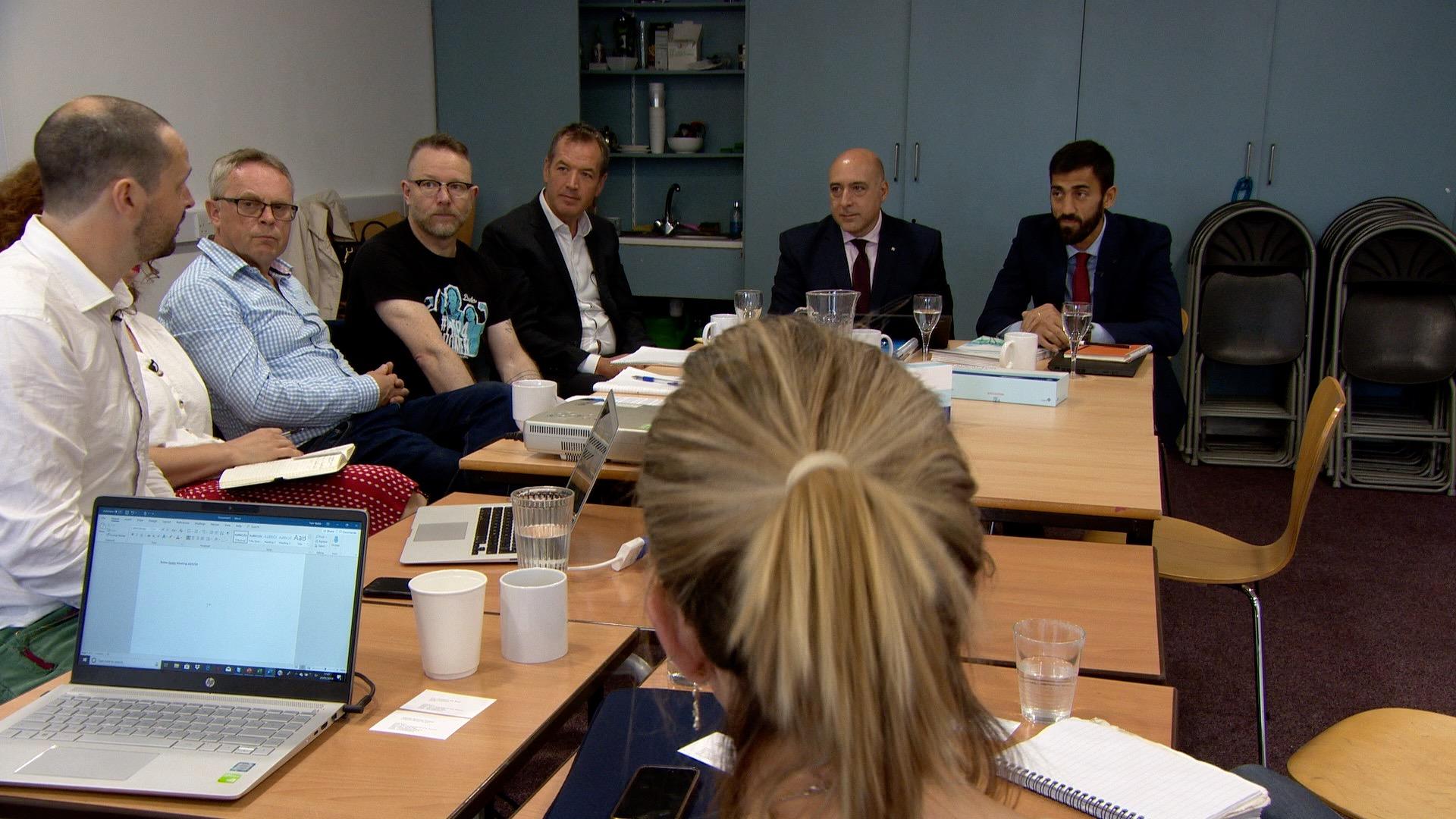
- Published29 August 2018
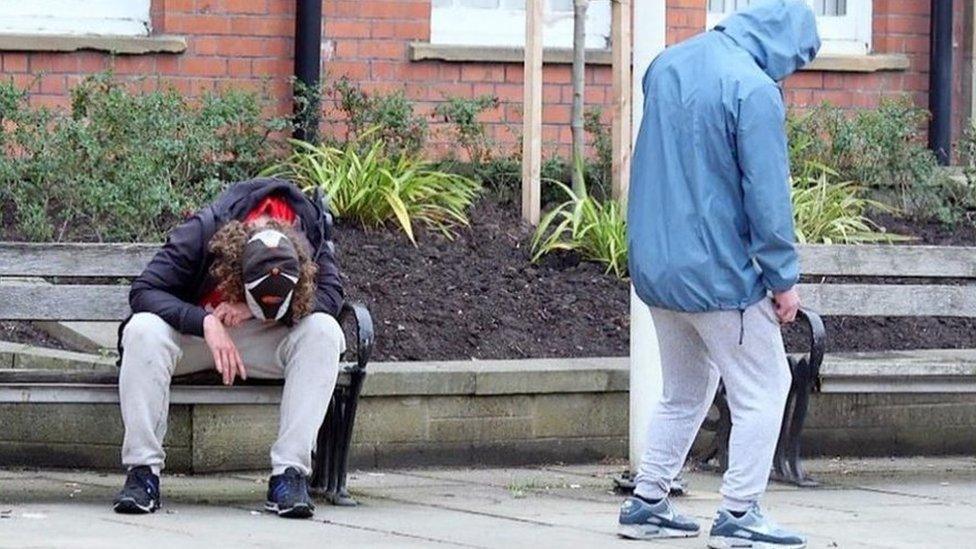
- Published18 August 2017
